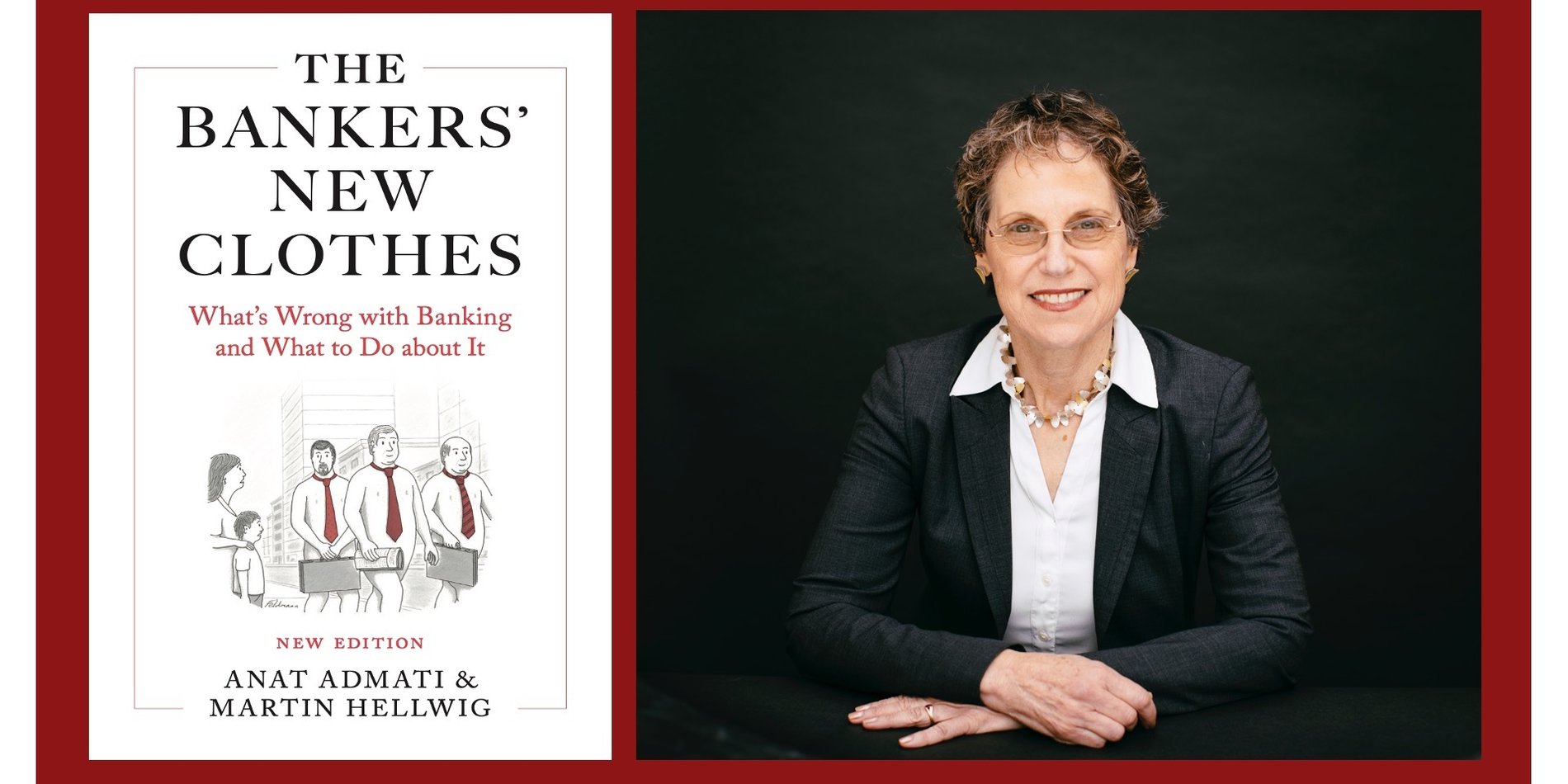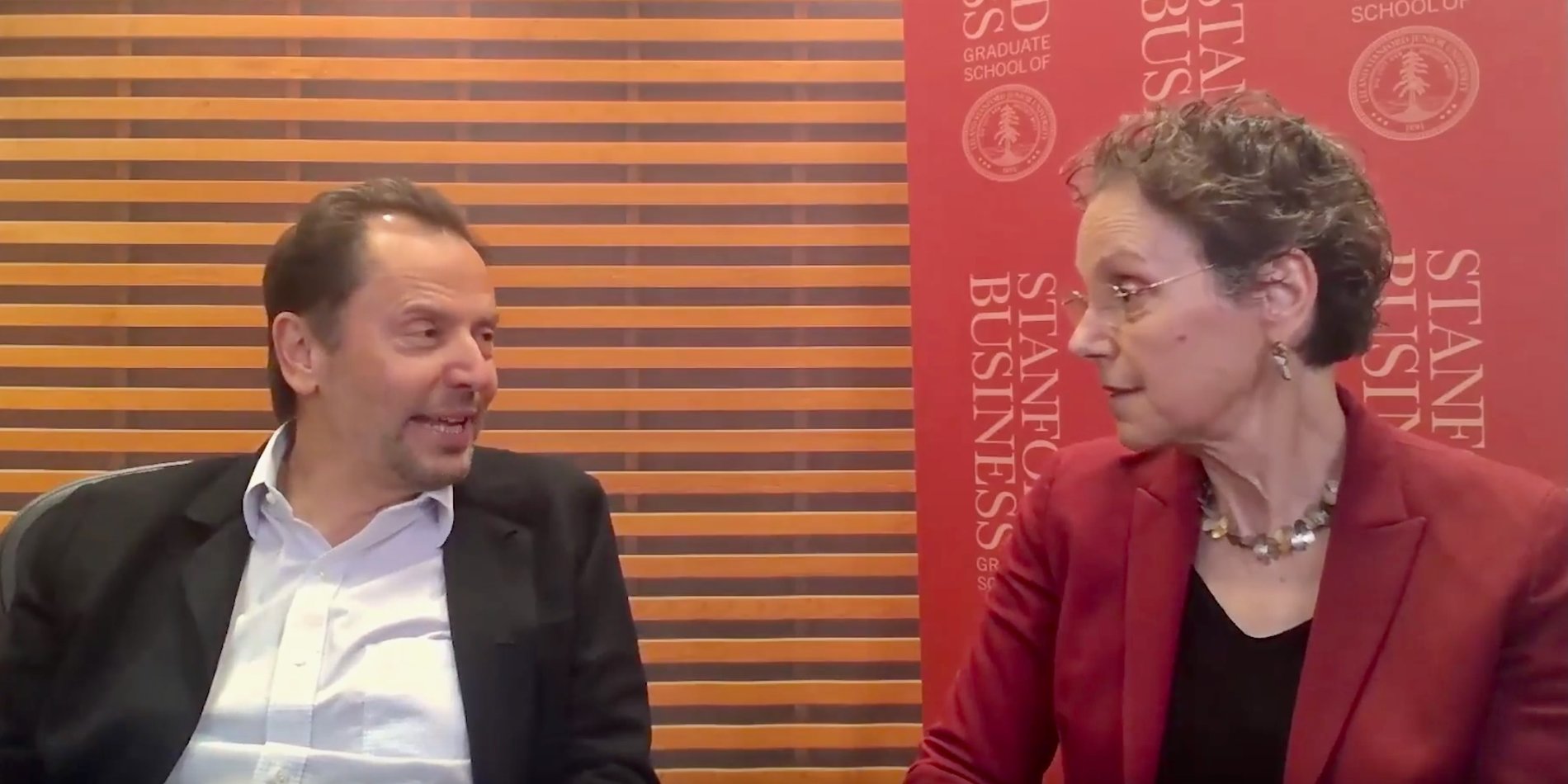“The First Thing You Can Do Is Unwind Complicity” – Winner Takes All Debrief

On May 20, a group of 22 GSB students joined Anand Giridharadas in a discussion of his book, Winner Takes All. Unsurprisingly, discussing a book with the subtitle “The Elite Charade of Changing the World” at a business school with a motto of “Change Life, Change Organizations, Change the World” engendered thought-provoking discussion.
A few key takeaways:
“The first thing you can do is unwind complicity”
When asked about how business school students could put their skills to good use, Giridharadas framed the question as “ask not what you can do for your country, ask what you’ve been doing to your country.” In this sense, he was highly skeptical of the neoliberal paradigm and of the “solution orientation” taught by business schools, in which the primary role of government is to provide the right incentives for innovation. According to Giridharadas, for the greatest impact, perhaps the best course of action is just unwinding bad behavior, from pollution to discrimination, rather than implementing new systems or solutions. Giridharadas also made an interesting observation about how the “billionaire class” were not the ones who were most upset by the book; rather the “Secretariat of the Elite” (e.g., conference organizers, etc.) were the ones most put off by his arguments.
“Not All Men” arguments for philanthropy
Students pushed back on Giridharadas’s skepticism of philanthropy by noting the positive contributions of philanthropists, such as the Gates Foundation. Giridharadas rebutted by analogizing this reasoning to a “Not All Men” argument for sexual harassment; just because there are some genuinely good actors doesn’t discredit the point that there is still an underlying cultural problem.
Though he believes there is no such thing as “win-win,” he is not anti-capitalist
“I am for human flourishing,” Giridharadas remarked. He emphasized the problem in “totalizing-isms” where one ideology consumes everything else, from government to civil society to nonprofits to art. As a counterpoint to the anti-capitalism rhetoric, he shared his perspective on how capitalism helped to dismantle some of the “-isms” driving inequality in India (e.g., sexism, the caste system, etc.).
Get money out of politics
When asked for the one measure he would want to implement to solve some of the problems he has identified, Giridharadas focused on his desire to get money out of American politics. He discussed the negative effects of rampant corporate lobbying, the potential of a wealth tax, and how to overturn Citizens United. He posed a poignant rhetorical question, asking: If some of these billionaires actually want structural change, why has none of them made a more concerted financial effort to end corporate lobbying?
We asked some students for their reactions after the discussion:
Jennifer Ouyang, MBA ‘21, appreciated Anand’s work on identifying the “-isms that impede human flourishing” and reframing the “what can I do?” discussion into “what can I undo?” “There are positions in government that have a lot of weight (i.e.,: overseeing an $8M fund in innovation); these opportunities need to get more attention.”
Mitchel Peterman, MBA ‘21, noted, “It was interesting getting to hear Anand voice his concerns with business school ideologies while we are in the thick of the program ourselves. It made me think about how to better influence the communities and systems we currently operate in rather than solely focusing on potential impact once we exit the program. This theme seemed prevalent: if you exist in a position or system that is privileged or wields the ability to have significant influence, focus on creating meaningful systematic change in the system you are in. This will in turn have spillover effects for the other actors who are either directly or indirectly affected.”
Ben Lazaroff, MBA ‘21, stated, “The way power, wealth and influence are accumulated, stowed away and compounded for a select few, feels inherently wrong to many. And even if it doesn’t — even if you’re the quintessential free market, competition-seeking capitalist who sees the public and social sectors as all-too-frequent impediments to private sector innovation — the ways in which these select few shape thought, art and debate still gets under your skin. Maybe the crux of why Anand’s book is important is not that it’s infallible in its criticism of modern inequality in America, but that it presents that criticism at all. He takes an axe to what looks like a stone monolith of assumptions undergirding our way of life — and asks us if we’ve really gotten it right after all this time.”
Several students left feeling hungry for more tangible solutions. Although many of us agreed on the urgency of the issues Giridharadas identified, we did not feel resolved on how to address the gaps. As Giridharadas was signing off from the Zoom meeting, he mentioned that his next appointment was taking his son fishing. In a moment of poetry, perhaps to be expected from a bestselling author, Giridharadas shared a charming anecdote of his young son’s recent attempt at writing after their fishing trips. At first, his son wrote about how “fishing didn’t work”. The next time, he changed it to “fishing doesn’t work.” Perhaps, that is the ultimate question we were left with — is it that the system didn’t work, or is it that the system doesn’t work? And if we recognize that it doesn’t work, how can we as aspiring business leaders fix it?



